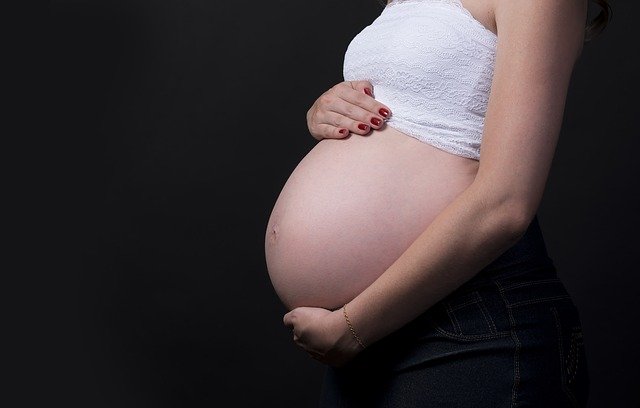A woman who experiences bleeding in the uterus in pregnancy, is not because of the period. What if a pregnant woman bleeds in her pregnancy? Is it normal or a red flag in her pregnancy? This is an obvious concern, that should not be taken lightly during pregnancy. This article will clear your doubts regarding consequences of getting a period / bleed during pregnancy.
Is it safe to get a period during pregnant?
Period is sign of ovulation, wherein the uterus lining becomes thicker for the fertilized egg to get attached to it and begin to develop. When a woman gets pregnant, then her period stops. She doesn’t ovulate like she has been before conceiving. Period or Menstruation occurs when the women isn’t pregnant. Though it is possible to experience a little bleeding during pregnancy, due to some other reasons.
But there is no relation between this bleeding and getting a period. The bleeding that a women experiences during pregnancy can be normal or critical. Based on the type of bleeding, she should contact her doctor.
Causes of bleeding during the first trimester
Around 25 percentage of expecting mothers are seen to bleed a little during the early stages of her pregnancy. There can be below reasons for it:
- Implantation bleeding
- Alterations in the cervix
- Bacterial infection
- Molar pregnancy
- Ectopic pregnancy (when the pregnancy happens in the fallopian tube instead of the uterus)
- Miscarriage
Implantation bleeding
This type of bleeding is seen to occur in the initial months of pregnancy. It happens when the fertilized egg gets implanted into the lining of the uterus. This happens close to the date of your period. Implantation bleeding is not the bleeding due to a period; it is only a light spotting.
After when you get pregnant, in the initial few weeks, you can see some changes in the cervix that can also be the reason for the bleeding. In most of the cases, it is quite normal.
However, if the bleeding is due to bacterial infection, molar pregnancy, miscarriage and ectopic pregnancy, then it is an emergency situation. You need to seek immediate help from your doctor. There are a few signs that can indicate you about these emergency situations:
- Severe cramps
- Back pain
- Abdominal pain
- Faintness
- Loss of consciousness
- Shoulder pain
- Fatigue
- Fever
- Changes in vaginal discharge
- Uncontrollable nausea
- Vomiting
- Heavy bleeding
What makes a woman bleed during her 2nd and 3rd trimesters of pregnancy
Bleeding after 1st trimester of pregnancy always becomes a serious concern. It requires immediate attention of doctors. Irrespective of the level of bleeding, light or heavy, there are a few causes that can cause it in second or third trimester of pregnancy.
- Term labor
- Preterm labor
- Cervical dilation
- Placenta previa
- Miscarriage
- Placental abruption
Out of the above causes, uterine rupture, and placenta previa are a very rare occurrence.
Preterm labor is one of the important causes of bleeding that is seen to happen before thirty-seven weeks of pregnancy. Cramping, and contractions can be felt during preterm labor. A few signs of preterm labor include:
- Backache
- Pressure in vagina
- Modifications in discharge
Placental abruption, Uterine rupture and Placenta previa are the common causes for bleeding. So, let us know more about these cases.
Placental abruption: Placental abruption happens in the last weeks of pregnancy. Here, the placenta gets detached from the uterus. It causes heavy bleeding, severe cramps, and chronic stomach.
Uterine rupture: In uterine rupture, the muscle of uterus either tears, or separates from the body. Due to which a woman experiences unrestrained bleeding. Women who had delivered earlier through cesarean delivery are more susceptible to uterine rupture.
Placenta previa: This issue is seen when the placenta is positioned low in the uterus, and is closely situated to the cervix. This is another reason for bleeding. Placenta previa causes problems in labor.
When should you seek assistance of a doctor?
Regardless of what has caused it, if you report bleeding during pregnancy, you should contact your healthcare professional. Bleeding can turn out to be critical, if it is accompanied by below symptoms. This requires emergency medical attention:
- Abdominal pain
- Cramps in stomach and legs
- Dizziness
- Heavy bleeding
- Passing of clots through vagina
- Severe pain experienced in the pelvis, and stomach
If the color of the bleeding turns out to be bright red, or becomes heavy, then it is a critical situation. Experiencing pelvic pain, and vaginal bleeding quite early in their pregnancy indicates ectopic pregnancy. If a woman suspects an “ectopic pregnancy”, then she must check with a doctor at the earliest.
Also read: Leg Cramps During Pregnancy: How To Stop & Prevent Them
Conclusion
Bleeding at the time of pregnancy doesn’t indicate her period. It can be due to changes in the internal functioning of the body. Heavy bleeding is not a normal phenomenon and needs immediate treatment. When faced by such condition, a pregnant woman should definitely talk to her healthcare professional for best resolution.

